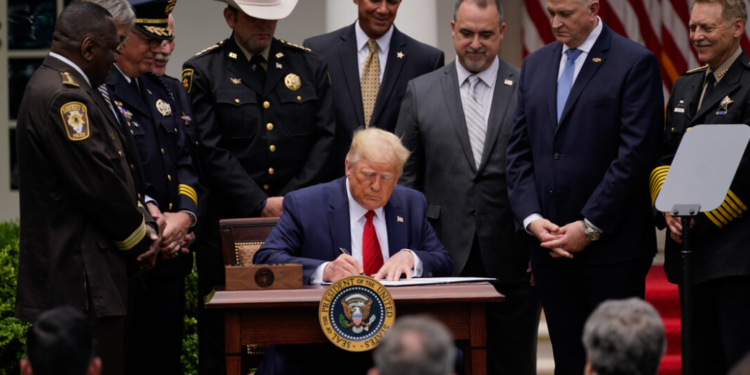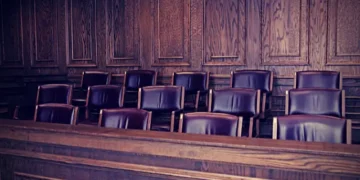Jan 27, 2025 Story by: Editor
In one of his first actions upon returning to the Oval Office, President Donald Trump revoked an executive order designed to “advance effective, accountable policing and criminal justice practices to enhance public trust and public safety.” This move not only dismantled many of President Joe Biden’s policing reforms but also marked a reversal of several policies Trump had supported during his first term.
Background on the Revoked Order
Following the Senate’s failure to pass the George Floyd Justice in Policing Act in 2021, the Biden administration sought to implement key elements of the legislation through an executive order. Signed in May 2022, on the second anniversary of George Floyd’s murder, the order aimed to “promote safe and accountable policing” through a range of measures:
- Restricting the use of force by federal law enforcement to a last resort.
- Limiting the use of no-knock warrants and chokeholds by federal police.
- Mandating the use of body cameras.
- Reducing the transfer of military equipment to state and local law enforcement.
- Establishing a national misconduct database for federal officers.
- Encouraging state and local police reforms through federal grants.
Trump’s Role in Early Policing Reforms
Ironically, several provisions in Biden’s order mirrored policies Trump championed during his first term. For instance, the National Law Enforcement Accountability Database, created under Biden’s directive, serves as a repository for misconduct claims and disciplinary records of federal officers. The database, launched by the Department of Justice in 2023, was searched nearly 10,000 times within its first year to assist in federal policing employment decisions.
However, the concept for such a database originated with Trump in 2020. His version proposed a registry to track misconduct and excessive force incidents but with some differences. Trump’s plan included anonymized and aggregated data and intended to make the database publicly accessible—a feature some advocates still support.
Trump’s First-Term Efforts on Policing Reform
Amid nationwide protests after Floyd’s murder, Trump signed his own executive order on policing reform. This order introduced measures to tighten use-of-force rules, ban chokeholds, allocate federal funding to compliant state and local police, and promote community programs addressing the needs of vulnerable populations. These provisions closely align with those in Biden’s later order.
Why the Reversal?
Trump’s decision to rescind Biden’s executive order appears to signal a departure from his predecessor’s policies and ideology. Another possible factor is the decreased public pressure to address racial justice and police reform compared to the heightened demands during the aftermath of Floyd’s death.
A Need for Consistent Policing Reforms
While Trump’s latest actions signify a shift in approach, the values underlying his first-term reforms remain pertinent. His 2020 order underscored the importance of fostering public trust in law enforcement, particularly in African American communities and promoting transparency and accountability.
As Trump’s 2020 directive stated, it is essential to inspire confidence in the police to uphold the nation’s founding ideals and protect the rights of all citizens. It emphasized the importance of tailoring policing practices to address the needs of vulnerable populations while ensuring the safe delivery of law enforcement services.
These principles remain relevant and should guide future efforts to craft effective and accountable policing policies, regardless of political shifts. Source: Brennan Center

















